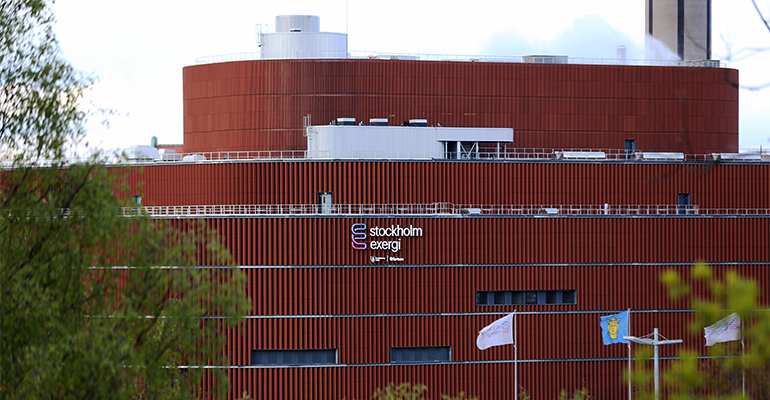For those of you who do not know
Stockholm Exergi, the basic facts are: it
provides energy to all of Stockholm; it discontinued the use of coal ahead of schedule; it is owned by the city of Stockholm and Fortum, a Finish State company. But I want to talk more about Bio-CCS and its contribution to tackle climate change and other companies’ historical emissions.
Before we get into that: Exergi is partly responsible for Stockholm’s green credentials. District heating is the backbone of the climate policies for Sweden and as
Stockholm continues its march to become fossil-free in 2040, Exergi strategy to be a
climate-positive energy company in 2025 will contribute significantly to the fossil-free targets.
Bio-CCS
Exergi plans are to supply energy and sell emission reductions and permanent storage facilities (
Bio-CCS) to companies interested to offset and permanently remove current and historical emissions.
This is a
very progressive strategy and one that is still waiting to receive legislative support from the various parliaments before it can become a second product that Exergi will be offering.
According to some sustainability experts, the model of climate-positive Bio-CCS and
sales of permanent removals of carbon and reduction of emissions needs to be recognised as an important mechanism if we are to meet the Paris agreement targets for emissions and the IPCC recommendations.
IPCC recognises the need to offset and permanent store carbon removal mechanisms. Decision-makers must provide the legal pathway to enable companies to deliver the solutions, obtain necessary investments, and effectively legislate to protect the planet from the escalating climate crisis.
Help to tackle climate change
Legislation procedures tend to have a slower pace than that of the technology created to address the climate crisis. The problem is that one of the things we no longer have is
time.
There are tested and proved techniques to demonstrate that permanent removal in geologically stable areas in the North Sea is safe and effective. The Belgium, Dutch, and Norwegians are doing it.
From the point of view of a business model, Exergi CEO
Anders Egelrud vision is to offer bilateral agreements to companies wanting to
reduce historical and current carbon emissions. Exergi climate positive capacity will enable the sales of offsets and carbon permanent removal and storage services to third parties.
The idea for selling bilateral agreements is both innovative and financially smart. I believe impact investors will agree. It opens a new income stream and, at the same time,
it helps tackle the climate crisis. Companies from the cement sector or database centres are potential clients. The trend for “
cleaning up historical emissions” has recently been announced by many corporations, like
Facebook and Google.
One of the challenges for Exergi’s innovative approach is to get decision-makers to understand the importance of immediately adopting catch and carbon permanent storage removal as a transitional strategy to help us meet the emissions targets set out in the Paris agreement.
When starting to write this blog, I tried to find one word that could label what Exergi’s new business model will offer. Bilateral catch and carbon permanent storage removal services? No, that’s too long…
New solutions need new names. The technology has already been developed. Any suggestions for a short name?
Originally posted on BlogActiv.eu 

